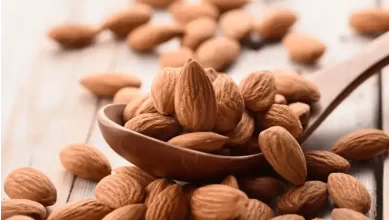Eating for Success: A Comprehensive Guide to Proper Diet While Training

For optimum performance, muscular recovery, and general wellbeing, your body needs to be properly fueled with the necessary nutrients. We will examine how to optimize your nutrition for success as well as the essentials of a balanced diet for those who like physical activity.
Understand Your Energy Needs
It’s important to understand what sort of energy you require before going into the finer points of your diet.
Your energy requirements might vary based on several factors:
- age
- gender
- weight
- level of exercise
- training goals.
Calculating your total daily energy expenditure (TDEE) is crucial as a result. Your daily calorie intake will then be calculated using this information.
By calculating your TDEE, you can ensure that you’re consuming enough calories to support your training and avoid deficiencies or excesses. This can be done using online calculators or consulting with a nutrition professional. Remember, finding the right balance is crucial for optimal performance and overall health.
Prioritize Macronutrients
Base your diet in macronutrients. This includes proteins, lipids, and carbohydrates. The maintenance of your body’s energy requirements and the accomplishment of your training goals depend on each macronutrient.
Carbohydrates
Carbs are your body’s primary energy source. Include entire grains, fruits, and vegetables as sources of complex carbs. They provide sustained energy and support glycogen stores, which are vital for endurance activities. When selecting carbohydrates, opt for whole foods over refined and processed options.
Proteins
Proteins are essential for repairing and growing muscles. Include lean sources such as poultry, fish, eggs, legumes, and dairy products. Aim for a sufficient protein intake to promote recovery and support muscle development.
To optimize protein synthesis, distribute your protein intake evenly throughout the day, including it in every meal and snack. This helps you maximize your exercises by supplying your body with an adequate quantity of amino acids for muscle synthesis and repair.
Fats
Energy production, hormone synthesis, and brain function all depend on healthy fats, like those in avocados, nuts, seeds, and olive oil.. For a diet that is well-rounded, include them in moderation.
Although fats should be consumed in moderation, they are necessary for food absorption and increase satiety. A range of healthy fats can promote overall wellbeing and serve as a long-lasting source of energy during exercise.
Optimize Nutrient Timing
When and how you eat can impact your training performance. Consider these key aspects of nutrient timing:
Pre-workout
It’s critical to time your pre-workout meal or snack for maximum energy and performance. To allow for digestion and absorption and to provide your body the fuel it needs to get through your workout, try to eat something between one and three hours before to starting.
Intra-workout
It’s crucial to replenish carbohydrates and keep hydrated throughout extended training sessions or severe workouts. Consuming carbohydrates in the form of sports drinks, energy gels, or easily digestible snacks can help sustain energy levels and support performance during extended periods of exercise.
Post-workout
Within 30 to 60 minutes of finishing your workout, eat a meal or snack. This should include both protein and carbohydrates to initiate muscle repair and replenish glycogen stores.
Within the first hour following exercise, eating a protein- and carbohydrate-rich meal or snack can help enhance muscle repair and restore energy stores.
Stay Hydrated
Hydration is often overlooked but plays a critical role in your training performance. Dehydration can lead to fatigue, decreased focus, and impaired recovery. Aim to drink water regularly throughout the day, and pay attention to your fluid intake during workouts.
Micronutrients and Supplements
Consume a lot of fruits and vegetables to make sure your body is getting all the vitamins, minerals, and antioxidants it need.
If needed, consider consulting with a healthcare professional to determine if specific supplements would benefit your training regimen.
Individualize Your Diet
Everyone is unique. What works someone else might not work for you. Experiment with different foods and meal timings to find what best supports your energy levels, performance, and recovery. Keep a food journal to track how different foods make you feel and perform.
Plan and Prepare
Success in nutrition and training often comes down to preparation. Plan your meals and snacks in advance so you have nutritious options readily available. This will help you avoid impulsive, unhealthy choices when hunger strikes.
Setting aside time for meal planning and preparation can help you to ensure that you consume a diet that is both nourishing and well-balanced.
Consider batch-cooking meals, packing healthy snacks, and organizing your kitchen to make healthy choices easier. This proactive approach will enable you to maintain your dietary objectives and make decisions that are beneficial to your general wellbeing.
Monitor and Adjust
As your training progresses, monitor your body’s response to your diet. Assess your energy levels, strength gains, and overall well-being. To maximize your performance and recuperation, modify your macronutrient ratios, portion sizes, or meal times as necessary.
Seek Professional Guidance
A trained dietitian or nutritionist may offer individualized suggestions based on your particular needs, goals, and any special dietary issues, so even while this guide offers a strong foundation for a healthy diet while training, you should strongly consider doing so.
You can also look at online fitness and exercise blogs like Gym Workout Today, which provide a plethora of tools and advice to support your fitness journey, for further direction and professional advise on diet and training.
To fulfill your unique needs and to make sure that your selections are in accordance with your overall wellbeing, keep in mind that working with a professional may help you tailor your nutrition plan.
Wrapping Up
It’s essential to remember that true progress in nutrition and training is built upon consistency. While it may be tempting to seek out quick fixes or fad diets, it is the sustainable habits that will ultimately yield the best results. Embrace a long-term perspective, understanding that transforming your body and achieving your fitness goals is a journey that requires dedication and patience.
Instead of relying on restrictive diets or drastic measures, prioritize nourishing your body with the right foods. Choose whole, nutrient-dense options that provide the necessary fuel and support for your workouts. By focusing on quality ingredients and balanced meals, you’ll optimize your energy levels, promote muscle recovery, and enhance overall performance.




